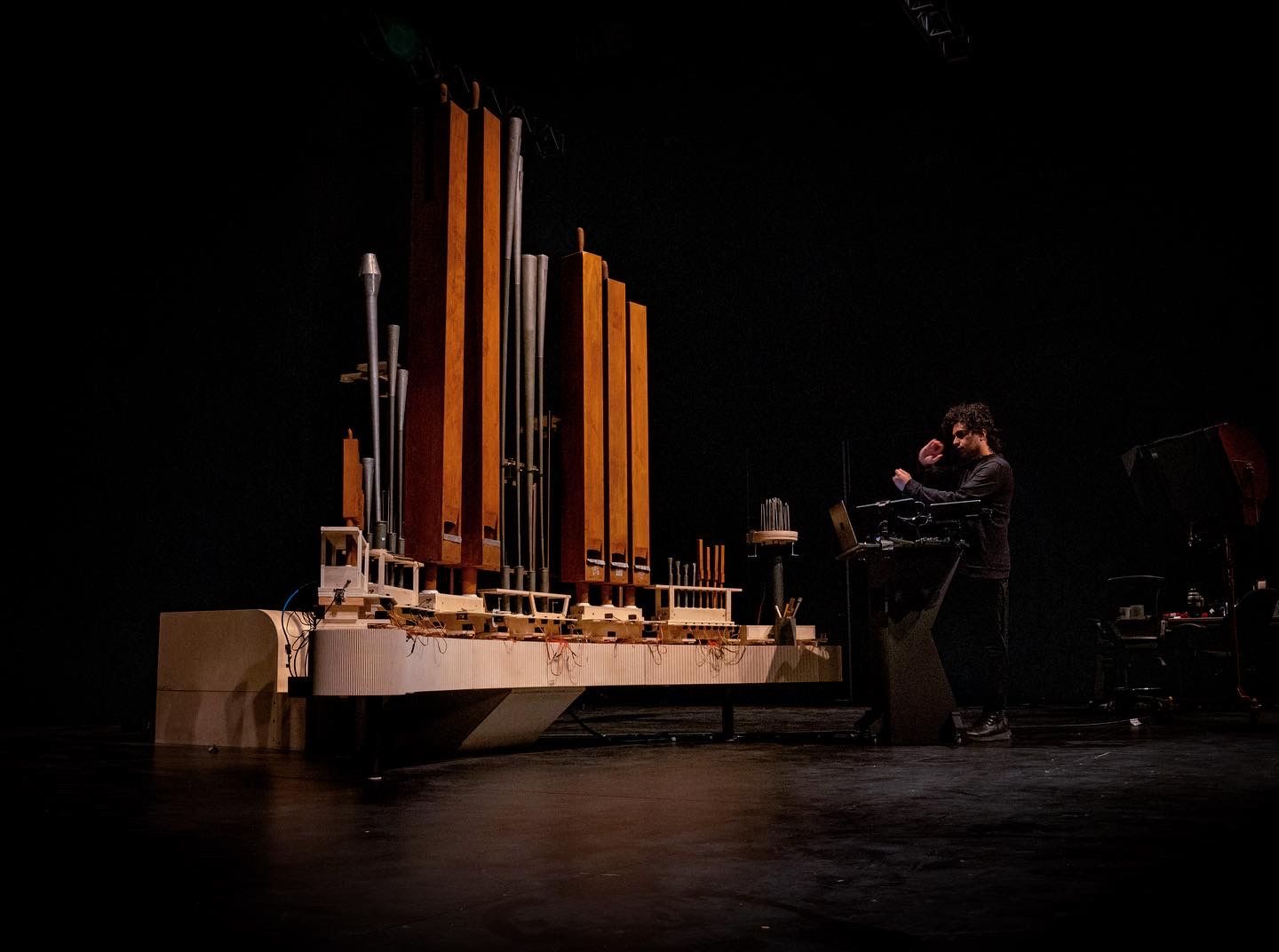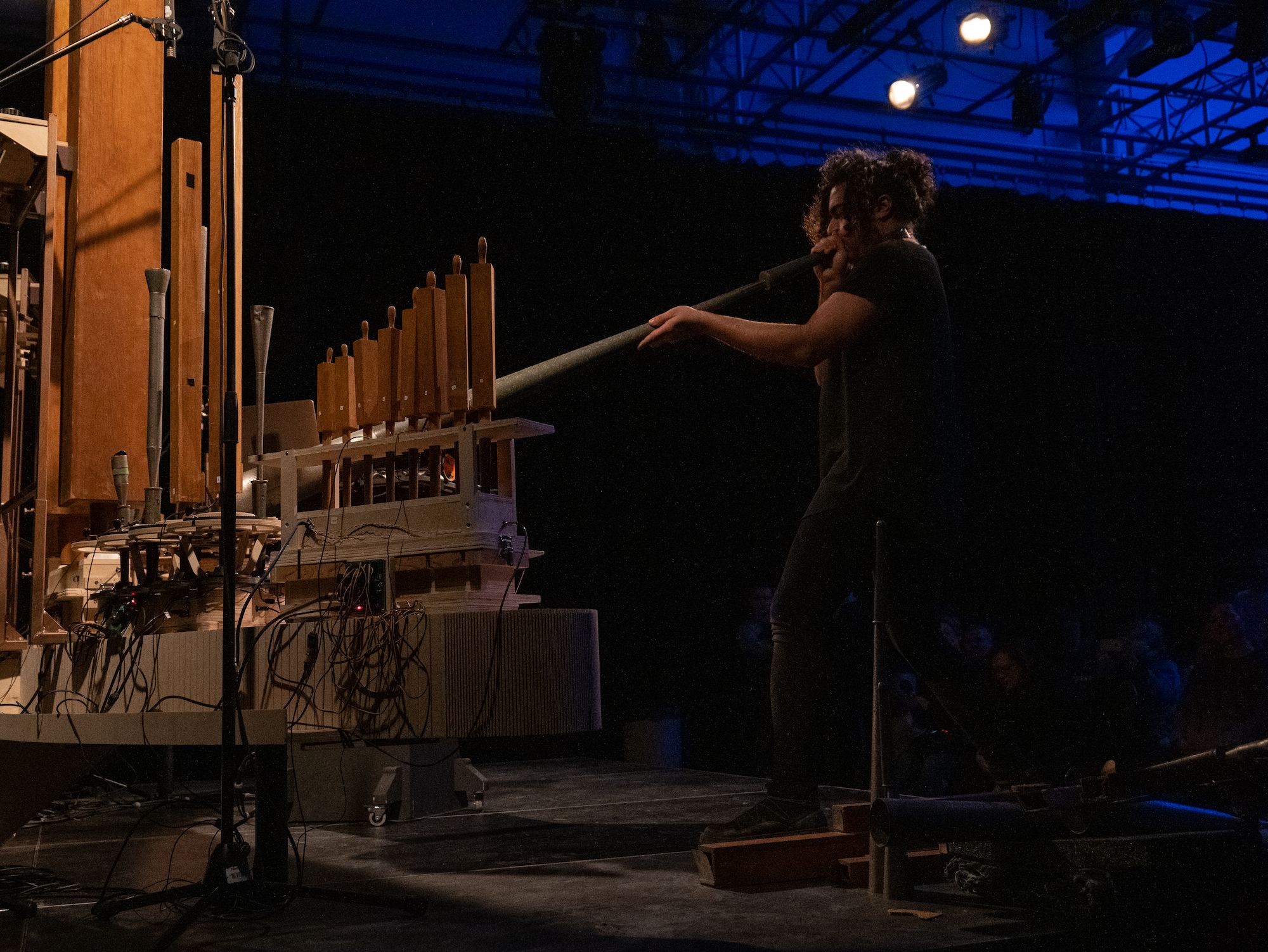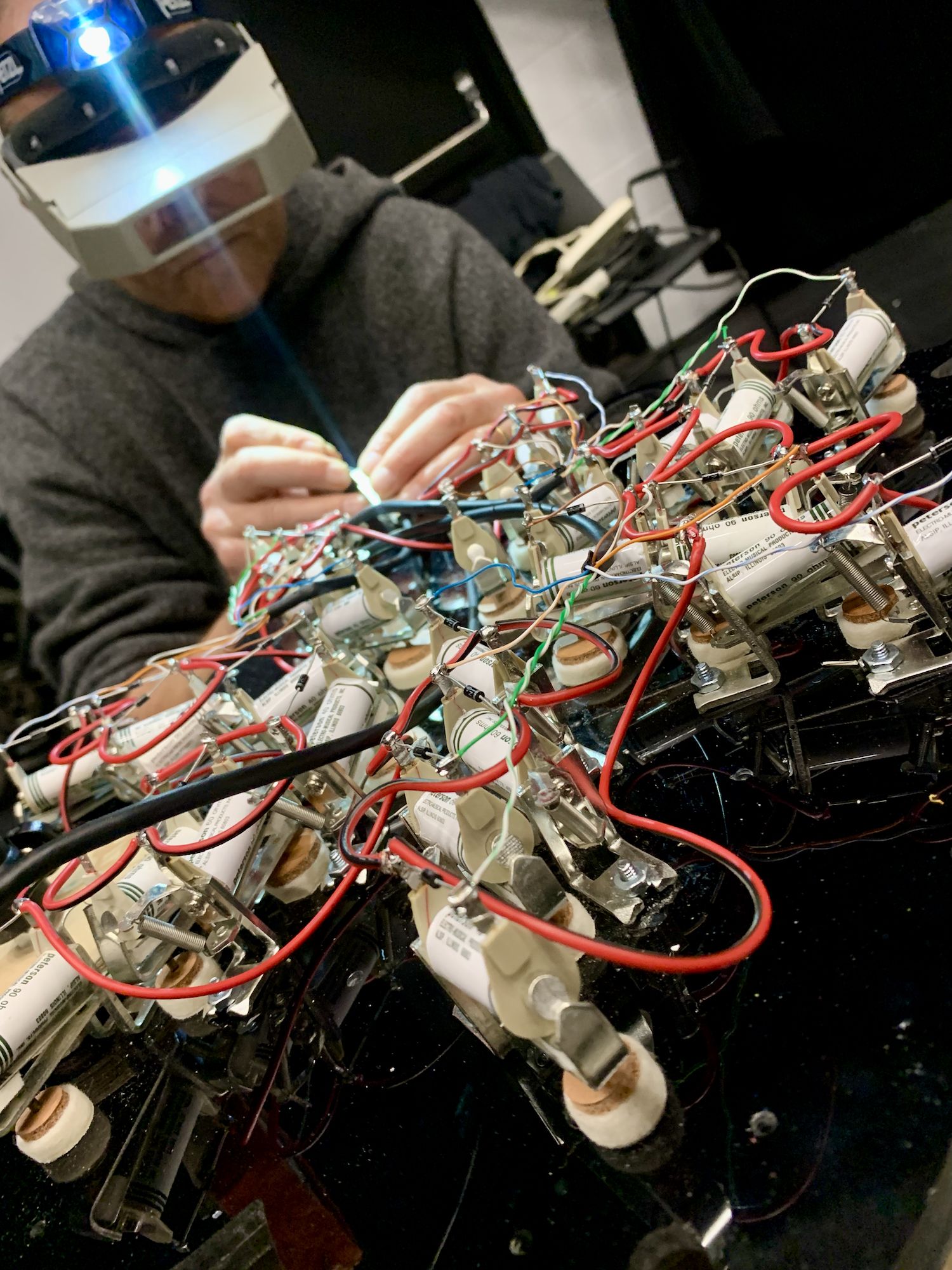Online Seminar
Sougwen Chung
to receive a zoom videoconference link

BIO
Sougwen Chung is a Chinese-Canadian artist and researcher considered a pioneer in human-machine collaboration – exploring the mark-made-by-hand and the mark-made-by-machine as an approach to understanding systems. Chung’s work MEMORY is part of the permanent collection of the Victoria and Albert Museum and is the first AI Model to be collected by a major institution. Recently, Chung was recognized as a Cultural Leader at the World Economic Forum, one of four recipients of the TIME100 Impact award, and named one of TIME's 100 Most Influential People in AI.
CIPh Seminar Series:
Experiment and Experience: A Polyphonic Seminar on the Dao of Indeterminacy and Play
Organized by:
Cécile Malaspina, Directrice de programme, Collège international de philosophie, Paris, Visiting Research Fellow at King's College London and UWE
&
Sha Xin Wei, Director of Synthesis, and Professor in the School of Arts, Media + Engineering, and in the School of Complex Adaptive Systems at Arizona State University
Seminar organised in partnership with Professor Patrick ffrench, King's College London, Dr Miguel Prado Casanova, University of the West of England and Professor Francesco Tava, University of the West of England
In An Introduction to Daoist Philosophies Steve Coutinho writes: “Interconnections build and shift as one develops familiarity with the verses, but the meaning never crystallises into a final form.” This seminar responds to the need to enlarge the concerns, vocabulary, and even the modes of articulation of philosophy, so as to address the transformative dynamics of the contemporary world. Because it imbricates local and planetary complexities, this work calls for greater openness towards philosophical legacies muted by the dominance of the Western tradition of philosophy, including alternative attitudes towards indeterminacy, as well as traditional ecological knowledge (TEK). We invite participants to bring plural, distinct personal and cultural genealogies of thought to bear on the theme of indeterminacy and play, as much to create a polyphonic family of generate interpretations of the theme as to showcase the richly disparate modes and concerns that animate these genealogies.











